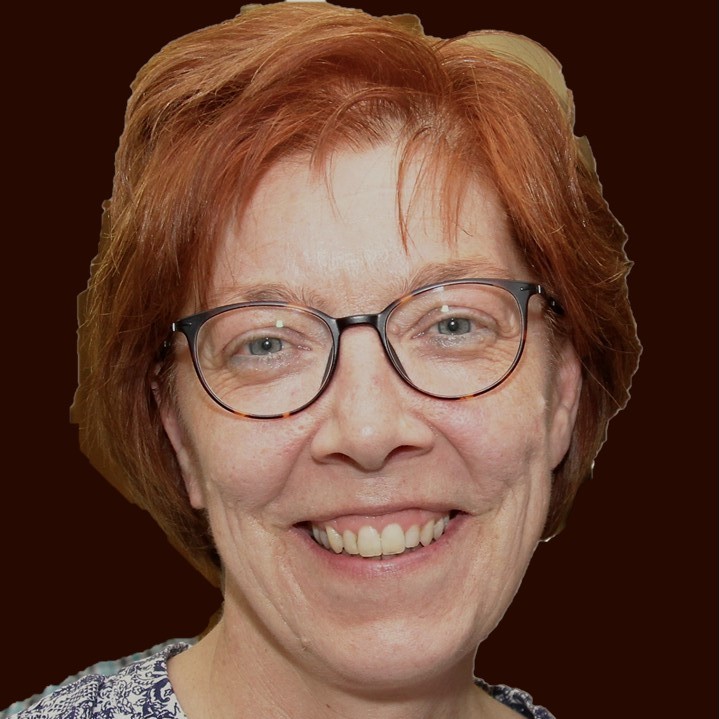Organizers: Dr. Hanna Rutkowska (rhanna@amu.edu.pl) and Dr. Marcin Krygier (mkrygier@amu.edu.pl), Department of the History of the English Language, Faculty of English, AMU Poznań
Lecture Series webpage: https://wa-ias.web.amu.edu.pl/

Date: 15/11/2023 (13:15-14:15)
Gijsbert Rutten is Professor by special appointment of Historical Sociolinguistics of Dutch at the Leiden University Centre for Linguistics. His research focuses on variation and change in Dutch, language contact, language policy, norms and ideologies. His current research project, funded by the Dutch Research Council (NWO), concerns the Dutch-French contact situation (1500-1900) with a focus on language choice, shift and contact-induced change. Recent publications include Language Planning as Nation Building. Ideology, policy and implementation in the Netherlands, 1750-1850 (Amsterdam, 2019: Benjamins), and a special issue of Language Policy co-edited with Rik Vosters: Revisiting Haugen: Historical-Sociolinguistic Perspectives on Standardization (2020). He is one of the editors of the Journal of Historical Sociolinguistics (De Gruyter).
Abstract:
Transmission and diffusion in the history of spelling
Labov (2007) introduced transmission and diffusion as the two main mechanisms in sound change. In this talk, Prof. Rutten will explore to what extent these concepts can be applied to orthographical changes in the history of European languages such as Dutch. He will argue that the approach needs to be complemented by a contact- and community-based perspective in the line of Milroy (2007). Taking examples from a variety of languages, he will discuss cases of transmission and diffusion in different types of communities. He will then focus on Dutch, and argue that the pattern of supralocalization (through diffusion) followed by standardization (in which transmission is important) needs to be extended to include the supra-national layer of pluricentricity.

Date: 29/11/2023 (13:15-14:15)
Anja Voeste is Professor of historical linguistics/German language history at Justus Liebig University Giessen, Germany. She graduated with a PhD on the variation of adjective declension of 18th-century German (Varianz und Vertikalisierung. Amsterdam & Atlanta 2000) and explored 16th-century spelling (Orthographie und Innovation. Hildesheim et al. 2008), outlining the trendsetting role of typesetters. She is co-editor (with Susan Baddeley) of Orthographies in Early Modern Europe, Berlin & Boston 2012, and (with Ursula Rautenberg) of Typographie, Stuttgart 2022.
Abstract:
Catechisms as primers: the role of catechisms in assisting early readers of German in the sixteenth century
In her contribution, Prof. Voeste will focus on the functions of catechisms in the development of literacy. Luther’s Small Catechism (1529) was written as a short introduction to the Christian faith and was intended to serve as a basis for teaching children and uneducated persons. In German Protestant countries, it quickly became a popular primer for novice readers and was printed in many regional editions. However, it is unclear to what extent spelling and layout reflected the intended readership and how regional features were dealt with.

Date: 13/12/2023 (13:15-14:15)
Mel Evans is a Lecturer in English Language (with digital) at the University of Leeds, UK. Her research explores the intersection between language, identity and technology, using corpus linguistic and digital humanities approaches. Her current projects include the linguistic and material construction of kingship in the royal correspondence of James V and Henry VIII, exploring the impact of these practices on Scots and English in the period. She is also a general editor on the Cambridge Works of Aphra Behn, for which she is investigating the style and authorship of Behn’s works using computational methods.
Abstract:
Spellings across unruly borders: the royal correspondence of James V of Scotland and Henry VIII of England, 1513-1542
The sixteenth century marks the divergence between print and manuscript spelling in Scots and in English. As spelling began to regularize in print, manuscript writing, such as letters, shows increasing individualization within local communities and in individual practices. This talk explores the dynamics of spelling variation in the correspondence exchanged between King James V of Scotland and King Henry VIII of England, identifying and interpreting the orthographic norms and developments within the letter-writing professionals, or secretariats, of each monarch. As well as considering these trends against the macro-level history of spelling in each language, Dr. Evans will consider the extent to which orthography in royal correspondence was starting to accrue symbolic, sociolinguistic meaning: as potential markers of monarchic authority, of national identity, and of solidarity and divergence of power between the two kings.

Date: 10/01/2024 (13:15-14:15)
Carol Percy is Professor of English at the University of Toronto, Canada. Her work on eighteenth-century English normative texts includes “The orthography of opposition” in the Age of Johnson (2004) and studies of grammatical prescriptivism in book reviews as well as in grammars by Robert Lowth and by women authors. She has forthcoming Cambridge UP handbook chapters on “Orthographic Norms and Authorities,” “Dictionaries and Social History,” and “Women’s Voices in the History of English.” Percy’s co-edited essay collections include Prescription and Tradition in Language: Establishing Standards across Time and Space(2016) and The Languages of Nation: Attitudes and Norms (2012).
Abstract:
Colonial orthographies and their contemporary consequences: focus on North American Englishes
Historically, the names of Indigenous places and peoples were often imprecisely represented or invisible in colonial orthographies, in part because the writing systems of many Indigenous languages were developed to facilitate their speakers’ acquisition of dominant colonial languages and cultures. Currently, there are efforts to adopt Indigenous representations of proper names in Canadian English, especially in the province of British Columbia, which in 2019 became the first jurisdiction in Canada to formally adopt the internationally recognized standards of the United Nations Declaration on the Rights of Indigenous Peoples. Drawing on historical and contemporary sources and current sociolinguistic theories, Prof. Percy’s talk will identify and contextualize some of the orthographical impediments to these contemporary efforts.

Date: 24/01/2024 (15:00-16:00)
Giedrius Subačius is a Professor and the Director of the Endowed Chair in Lithuanian Studies at the University of Illinois at Chicago (USA). His primary research interests are in historical sociolinguistics, history of the Lithuanian language, history of orthography, and development of standard languages. The most recent of his six monographs was “Simonas Daukantas’s St Petersburg Orthography (1834–1846)” (638 p., 2021). Subačius is a founder and editor of the annual journal of Lithuanian historical sociolinguistics “Archivum Lithuanicum” (vols. 1–24, 1999–2022). He was awarded important awards by the governmental institutions of Lithuania.
Abstract:
Development of prestandard Lithuanian orthography and certain theoretical insights: symbolism, materiality, aestheticity, and graphochronology
Prof. Subačius will focus on the prestandard Lithuanian orthography, trends of its 16–18-c. development in two major milieus: East Prussia (mostly based on German) and Grand Duchy of Lithuania (mostly based on Polish). Also, he will address aspects of the 19-c. orthographic specificity: symbolism, materiality, aestheticity, method of graphochronology, and specific variables. The speaker will conclude with the dramatism of the final selection of graphemes for standard Lithuanian at the end of the 19 c. (during the 1865–1904 ban on Latin script for Lithuanian by the Russian empire).
© 2023 All Rights Reserved